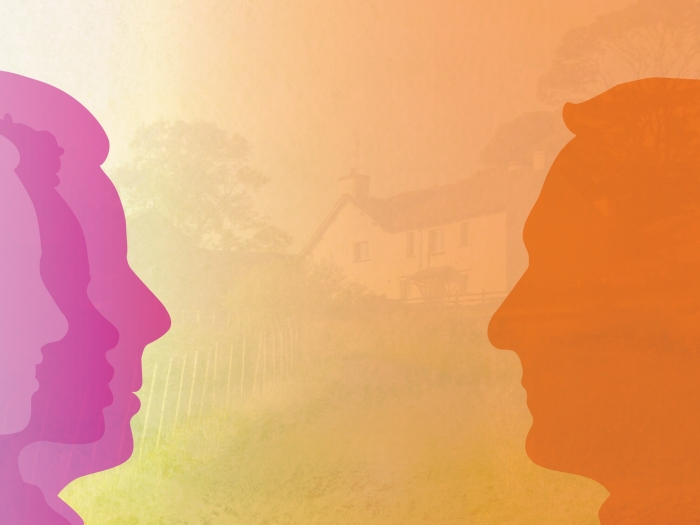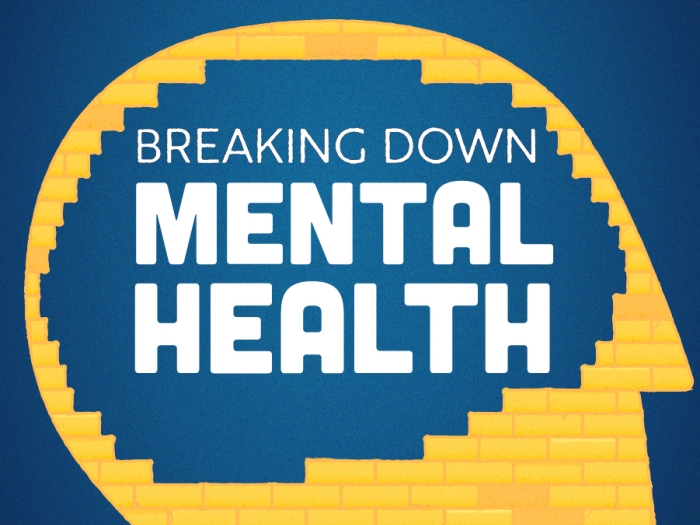An unlikely friendship between a Vietnam vet and a 20-something LGBTQ National Guard member shows the transformative power of peer support for veterans.
7:00 AM
Author |

With two swift actions, Bianca Racine's military career shifted into free fall.
MORE FROM MICHGIAN: Sign up for our weekly newsletter
First, she yelled at her command sergeant major, something a specialist in the Army should never do. Then she was so angry with herself that she punched a tree.
Her hand bloodied and spirit broken, her sergeant told Racine to get help immediately. He had her contact the man who had been attending armory meetings for months, the one Racine never wanted to talk to, even though she knew he was there to help soldiers like her.
What could a Vietnam veteran have to offer her, a 20-something LGBTQ soldier who enlisted during the "don't ask, don't tell" era, served in Kosovo and had learned to handle problems on her own?
Now she had no choice. Talk to Bob. Fine. But she wasn't going to open up to him, and she was sure that whatever good intentions he had, he wouldn't be able to help her.
When they met, Racine told Bob Short what she had done. "Did the tree punch back?" he asked.
And with that, he broke down the first of many barriers. Racine opened up, and Short helped her transition from service through her medical discharge, find a therapist, get treatment through a Veterans Affairs hospital, switch to another VA hospital when the first one didn't work out, find a job and get signed up for the GI Bill to pay for her education.
She also learned that she wasn't alone. "Whatever you've been through," Racine says, "somebody else has, too."
The power of peers
Short and Racine met through Buddy-to-Buddy (B2B), a Michigan Medicine peer-to-peer outreach program that trains veterans to support service members and other veterans. Short was the training coordinator for B2B and a volunteer at the Augusta Armory in southwestern Michigan when he and Racine began working together.
SEE ALSO: A surgeon Answers Her Country's Call
B2B is part of Military Support Programs and Networks (M-SPAN), a suite of military mental health programs offered by the U-M Depression Center and a variety of partners.
The M-SPAN programs also include Peer Advisors for Veteran Education (PAVE), which connects incoming student veterans on college campuses with successful trained peers who are upper-class students at their colleges and universities; Strong Military Families, which supports military families who have young children; HomeFront Strong, a resiliency program for post-9/11 service member and veteran spouses; and After Her Service, a resiliency program for post-9/11 female veterans.
When peers are involved, they are trained by experts from M-SPAN, are given access to an online resource database and receive weekly support calls.
"Peer support is vital to these veterans, service members and families," says Michelle Kees, Ph.D., principal investigator for a majority of the military-focused programs within M-SPAN. She also is a clinical psychologist and an associate professor in the Department of Psychiatry and a member of the Depression Center.
"We are building a community that helps families with a key challenge: isolation. They easily connect with one another because they have a shared narrative about being in the military.
"This is such a strong population — those who have served in the military as well as their families," she adds. "I am constantly in awe of their resilience."
'Serve those who have served'
For Racine, the Depression Center's outreach programs have been lifesaving — and life-affirming.
SEE ALSO: Post-Traumatic Stress Disorder: How to Get Help (or Help Someone Else)
Once she found her footing with Short's help, her entire life changed. She now works at a drug abuse treatment facility and is a student at Macomb Community College. Her major, affected heavily by her experience with B2B, is social work.
And she is now a volunteer with B2B, helping other veterans and service members through struggles ranging from post-traumatic stress disorder to joblessness and homelessness. Her skillset grows almost daily, as she drives around several counties in southeastern Michigan, attending meetings and working with people one-on-one.
She is still in touch with Short and her contacts who work with the B2B program at U-M.
"It has allowed me to find purpose again. I can serve those who have served, and I am supported by an unbelievable group of professionals all around Michigan," Racine says. "I trust the people who have my back."
Illustration by B. Creative Group Inc.

Explore a variety of healthcare news & stories by visiting the Health Lab home page for more articles.

Department of Communication at Michigan Medicine
Want top health & research news weekly? Sign up for Health Lab’s newsletters today!





